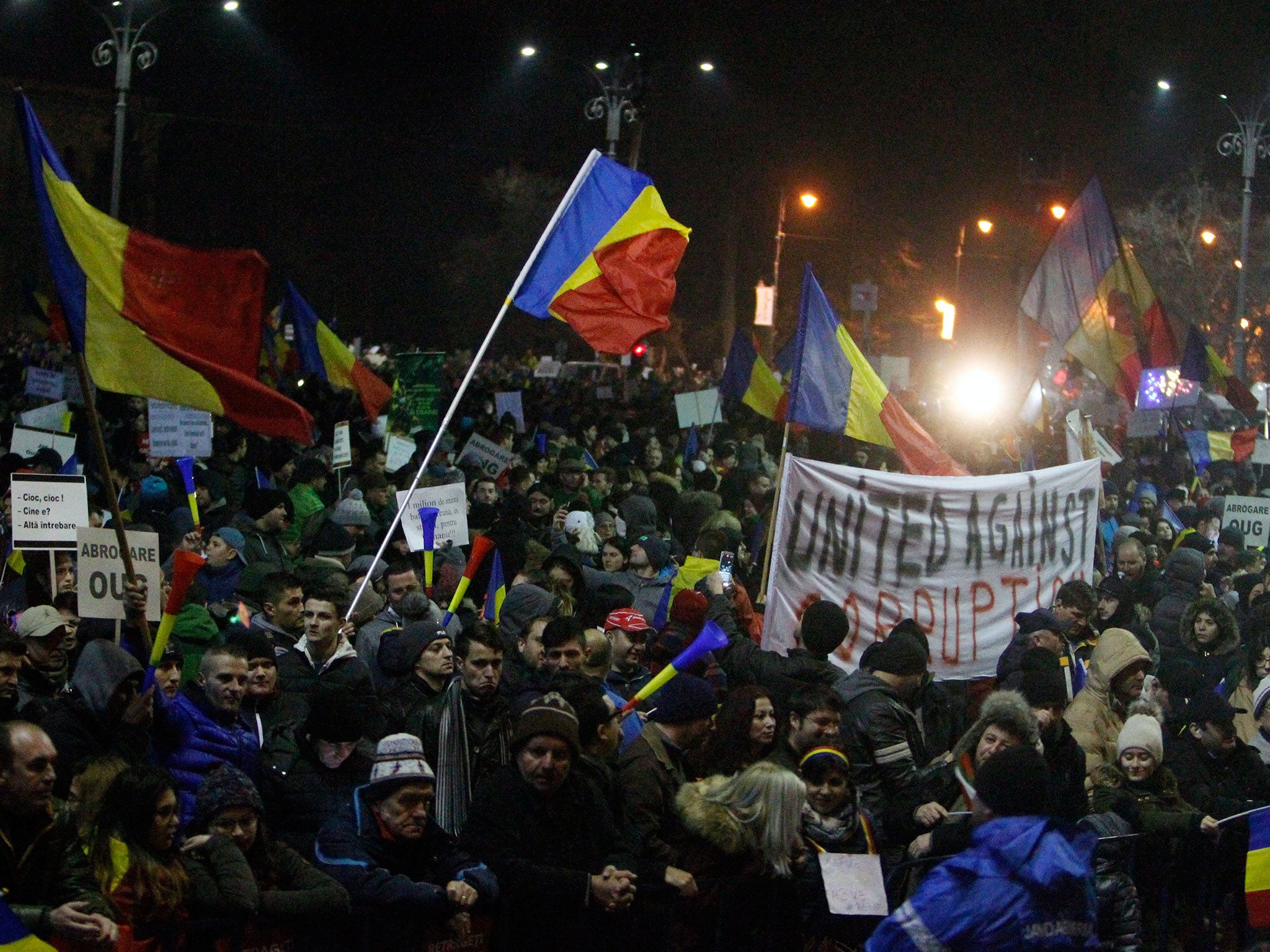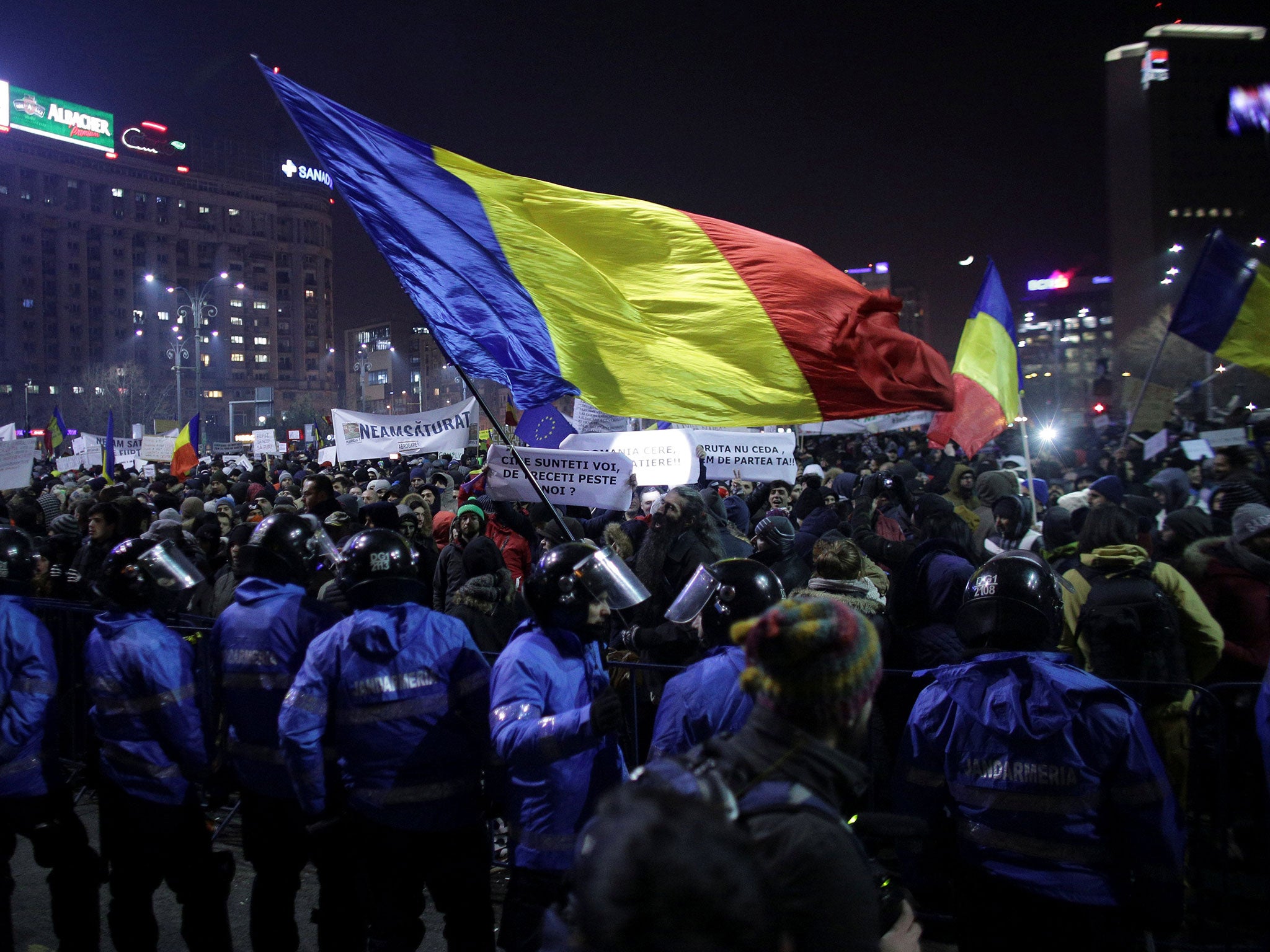Romanian government repeals controversial corruption decree after days of mass protest
'Romania in this moment seems broken in two,' says Prime Minister

Your support helps us to tell the story
From reproductive rights to climate change to Big Tech, The Independent is on the ground when the story is developing. Whether it's investigating the financials of Elon Musk's pro-Trump PAC or producing our latest documentary, 'The A Word', which shines a light on the American women fighting for reproductive rights, we know how important it is to parse out the facts from the messaging.
At such a critical moment in US history, we need reporters on the ground. Your donation allows us to keep sending journalists to speak to both sides of the story.
The Independent is trusted by Americans across the entire political spectrum. And unlike many other quality news outlets, we choose not to lock Americans out of our reporting and analysis with paywalls. We believe quality journalism should be available to everyone, paid for by those who can afford it.
Your support makes all the difference.Romania has repealed a decree decriminalising some corruption offences after days of mass protest.
“The decree was scrapped,” a government official told Reuters, adding that an official statement would be released soon.
Yesterday Romania’s Prime Minister Sorin Grindeanu said he would hold an emergency meeting to scrap the decree, which sparked the biggest protests in Romania since the end of communism in 1989.
“I don’t want to divide Romania... Romania in this moment seems broken in two,” Mr Grindeanu said.

Protesters were angry that the measure waters down the country’s fight against corrupt officials, including the ruling Social Democrats' party leader, and that it was passed in the middle of the night by emergency decree with no input from parliament.
Tens of thousands took to the streets for the fifth consecutive day yesterday.

Protesters continued this morning outside government offices in the capital of Bucharest, and some expressed doubt that the government would actually withdraw the measure.
The Constitutional Court was scheduled to rule on the legality of the decree later this week.

Liviu Dragnea, head of the ruling Social Democrats, is one of those who would have benefited from the new law.
He is banned by law from serving as prime minister because he was handed a two-year prison sentence in April 2016 for vote-rigging.
Join our commenting forum
Join thought-provoking conversations, follow other Independent readers and see their replies
Comments